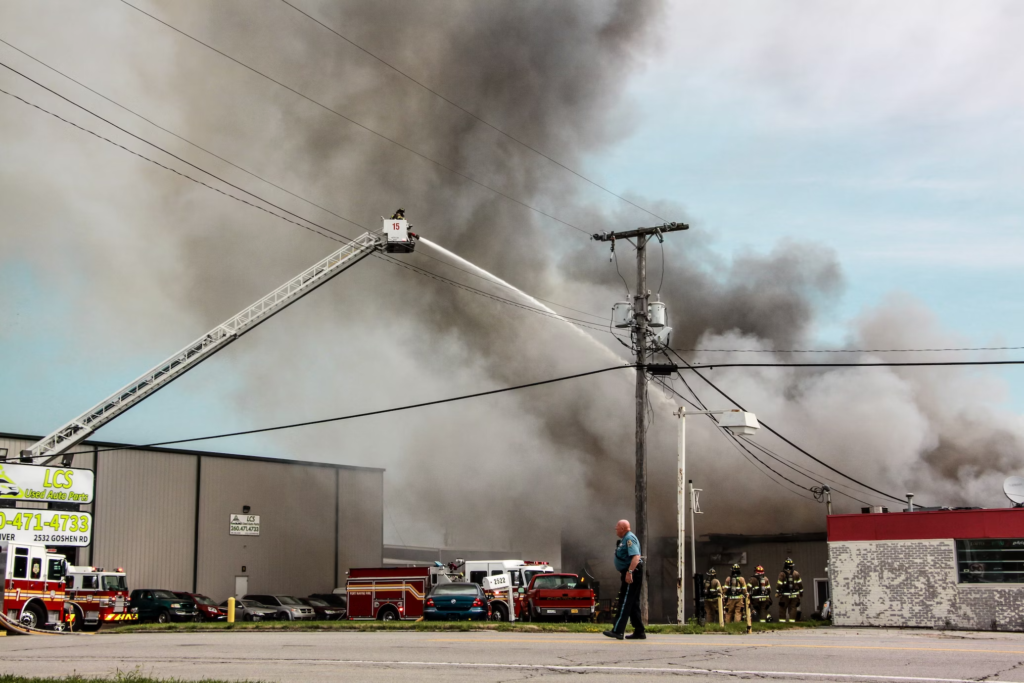If you run a construction company, you will probably know you are in one of the riskiest industries. Building sites thrive in risks, from the possibility of slip and fall mishaps to the chances of falling from heights, electrocution, faulty machinery, and falling objects. Statistics show that the number of on-site deaths due to slips, falls, and trips alone increased by 5.9% from 2018 to 2021.
Fire is another significant risk, although most builders may consider it secondary. However, the numbers show a different narrative. Local fire departments in the US responded to an average of 4,440 fires in incomplete building structures annually from 2017 to 2021. These mishaps led to a cost of $370 million in direct property damage, five civilian deaths, and 59 civilian injuries.
Beyond the numbers, there are more reasons to take fire safety seriously. We will explain a few valid reasons why it should be a priority for construction businesses.
Ensuring Worker Welfare
Worker welfare is an essential concern in all industries, and construction is no exception. Fire incidents on-site can escalate quickly, putting workers at immediate risk. Even worse, they elevate the risk of slip-and-fall incidents as people try to rush out to save themselves. A lesser-known threat is exposure to the hazardous chemicals in the seemingly life-saving firefighting foam.
Over the years, research has proved that the highly toxic, persistent PFAS (per and polyfluoroalkyl substances) used in firefighting foam are linked to cancer. The firefighting foam lawsuit seals these research findings by adding a legal element to the risk. If firefighters can suffer from the health effects of exposure to these chemicals, your workers will not be spared.
TorHoerman Law notes that AFFF is now phased out and banned in several parts of the US, despite its efficacy in extinguishing fires. Moreover, the number of compensation claims filed by victims suffering from the aftermath of exposure is on the rise.
Prevention is your best bet to minimize this risk for your workers. Fire safety measures such as training, adequate fire fighting equipment, and emergency response plans can keep your workers safe.
Minimizing Financial Loss
According to surveys, businesses sustained a whopping loss of $167.0 billion as the cost of work injuries in 2021. The number includes medical expenses, productivity loss, and administrative costs. Builders may encounter massive losses as construction projects have significant investments in structures, materials, and equipment.
A fire incident can take a severe toll with the destruction of physical assets, project delays, and an increase in insurance premiums. These additional costs can kill your profits in the long run. You can reduce them by covering risks with measures like regular equipment inspections, fire-resistant materials, and proper storage protocols.
Ensuring Regulatory Compliance
Like all industries, construction is a highly regulated one when it comes to fire safety regulations. It has to follow the standard National Fire Protections Fire Code (NFPA 1) that sets the guidelines for safeguarding construction, demolition, and alternation operations. Noncompliance can lead to severe legal consequences, including fines, legal liabilities, and project shutdowns.
Prioritizing fire safety enables construction companies to meet regulatory requirements and keep these penalties at bay. Further, it demonstrates your commitment to ethical business practices. It establishes trust with clients, regulatory authorities, and the public.

Maintaining Project Continuity
Project disruptions are common in the construction industry, and they can have a massive burden on business. Severe weather, material shortages, and accidents lead to project disruptions, delays, and cost overruns. Fire at your building site is the worst disruptor because it may have a cascading effect on timelines.
Your project design may go wrong, building quality gets affected, and worker injuries result in poor performance. The best way to address this risk is by integrating fire safety into the project planning phase. Consider fire-resistant designs, contingency plans, and efficient evacuation routes to ensure the safety and timely completion of the project.
Enhancing Corporate Reputation
Research establishes a strong link between corporate reputation and the financial performance of a business. A commitment to fire safety can contribute to a construction company’s reputation in the long run. Workers tend to stick with companies that go the extra mile with their safety, and clients prefer working with contractors with a track record for a secure work environment.
Preventing on-site fires strengthens your employer’s brand and overall reputation on the market. You are more likely to build long-term client relationships, win contracts, and differentiate your brand in a competitive market. A positive safety record can also serve as a valuable marketing tool.
In conclusion, construction companies should not get complacent about fire safety because the risk abounds on incomplete building sites. With electrical equipment posing hazards, there is always a chance of a spark becoming a full-blown inferno. Fire safety can protect workers, assets, investments, and business reputation. It deserves as much attention as you can give.





